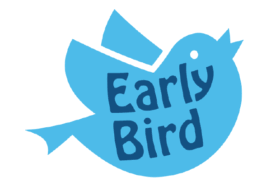In this Papers Podcast, Dr. Luisa Sugaya and Dr. Luis C. Farhat discuss their co-authored JCPP Advances Special Issue Research Review ‘Efficacy of stimulants for preschool attention-deficit/hyperactivity disorder: A systematic review and meta-analysis’ (https://doi.org/10.1002/jcv2.12146). Luisa and Luis are co-first authors of this work.
There is an overview of the paper, methodology, key findings, and implications for practice.
Discussion points include:
- Insight into the original research aims.
- The existing gaps in the current literature.
- Implications of the review from a clinical and research perspective.
- Implications from a policy perspective, including prescribing guidance.
- Advice for parents/carers of preschool children with ADHD.
To find out more about the 2023 JCPP Advances Special Issue ‘Evidence-based Synthesis Studies for Child and Adolescent Mental Health Conditions’, do check out our fantastic landing page of resources from the Special Issue.
In this series, we speak to authors of papers published in one of ACAMH’s three journals. These are The Journal of Child Psychology and Psychiatry (JCPP); The Child and Adolescent Mental Health (CAMH) journal; and JCPP Advances.
Subscribe to ACAMH mental health podcasts on your preferred streaming platform. Just search for ACAMH on; SoundCloud, Spotify, CastBox, Deezer, Google Podcasts, Podcastaddict, JioSaavn, Listen notes, Radio Public, and Radio.com (not available in the EU). Plus we are on Apple Podcasts visit the link or click on the icon, or scan the QR code.

Luisa Sugaya is a child and adolescent psychiatrist. She completed her medical degree and medical residency at the Faculty of Medicine of the University of São Paulo (FMUSP). Her main interest is the study of irritability and disruptive behaviors at different stages of development. She is currently a doctoral student at the Department of Psychiatry at FMUSP. In her free time, she enjoys playing sports, spending time with friends and traveling. (Bio and Image from Guilherme V. Polanczyk Childhood and Adolescent Psychiatry Team)

Luis C. Farhat is a final year medical student at the Faculty of Medicine FMUSP, University of São Paulo. He has a strong interest in epidemiology, evidence-based mental health and precision psychiatry. His research efforts are focused on obsessive-compulsive disorder and related disorders, e.g. trichotillomania, and neurodevelopmental disorders, e.g. autism and attention deficit hyperactivity disorder, across the lifespan. (Bio from Guilherme V. Polanczyk Childhood and Adolescent Psychiatry Team)
Other resources
- Featured paper ‘Research Review: Efficacy of stimulants for preschool attention-deficit/hyperactivity disorder: A systematic review and meta-analysis’, Luisa S. Sugaya, Luis C. Farhat, Pietro Califano, Guilherme V. Polanczyk
- JCPP Advances 2023 Special Issue – ‘Evidence-based Synthesis Studies for Child and Adolescent Mental Health Conditions’
Transcript
[00:00:01.360] Mark Tebbs: Hello, and welcome to the Papers Podcast series for the Association for Child and Adolescent Mental Health, or ACAMH for short. I’m Mark Tebbs, and I’m a Freelance Consultant. Today, I’m really pleased to be talking to Dr. Luisa Sugaya and Dr. Luis Farhat, who are the co-First Authors of a paper entitled, “Efficacy of Stimulants for Preschool Attention-Deficit/Hyperactivity Disorder: A Systematic Review and Meta-Analysis,” recently published in JCPP Advances.
Lovely to be speaking to you both today. Could you introduce yourselves and the people that you worked with?
[00:00:42.219] Dr. Luisa Sugaya: Hi, Mark, thank you very much for inviting us. My name is Luisa Sugaya, and I am a Childhood Adolescent Psychiatrist at the Institute of Psychiatry at the University of São Paulo in Brazil. There, I work at the Early Diagnosis and Intervention Programme Outpatient Clinic, which provides evaluation and treatment for preschool children with ADHD and other comorbidities. And this has been the main focus of my research, as well as early irritability.
[00:01:10.050] Dr. Luis Farhat: And it’s nice to be here, as well. Thank you for the invitation. I am a Physician from Brazil who’s finishing his PhD studies. My main focus of research is similar to Luisa, ADHD and neurodevelopmental disorders, broadly speaking, and I’m particularly interested in meta-analysis and systematic reviews, with an emphasis in clinically relevant research questions. And the other two authors that contributed to this paper are Pietro, who is a Psychiatric Resident here in Brazil, and Professor Guilherme Polanczyk, who is the Head of Child and Adolescent Psychiatry here. He’s also a University Professor at University of São Paulo and, sort of, our mentor in this project, and much others.
[00:01:59.420] Mark Tebbs: Could you start by giving us a brief overview of your review paper to set the scene for our listeners?
[00:02:05.470] Dr. Luisa Sugaya: ADHD, or attention-deficit and hyperactivity disorder, is a common neurodevelopmental disorder characterised by symptoms of inattention, hyperactivity and impulsivity that typically emerge in early childhood. And we know that it has a chronic cause and is associated with increased morbidity and mortality. And the literature shows that preschool children already present significant impairment, such as peer rejection, increased risks of accidents and academic underachievement, what are underscores for us the importance of early diagnosis and interventions.
But when we think about current guidelines, they recommend behavioural parent training and lisdex stimulants as the second-line interventions for those children who persist with symptoms and impairment. However, when we looked at literature, there is still important questions about the best treatment for preschoolers with ADHD. On one hand, we will have a limit number of studies evaluating the use of this kind of medication for preschoolers, in contrast, what we have for older children, or school-age children and adolescents. On the other hand, our meta-analysis had shown that behavioural parent training reduces ADHD symptoms only when they are reported by unblinded informants, what raises questions about its efficacy.
Also, there are concerns about the limited access that we have for behavioural interventions globally. In this context, what we have is that many preschoolers with ADHD either go untreated or receive medications with little evidence. Thus, more studies about the use of stimulants for preschool children with ADHD are necessary and important to inform how to treat these kids.
[00:03:46.209] Mark Tebbs: Brilliant. Thank you for that. You’ve, kind of, touched on it, but I just wondered whether you could just describe a little bit more about your, like, original research aims.
[00:03:54.790] Dr. Luisa Sugaya: Basically, the aim of this research is to do a systematic review and meta-analysis to review the available evidence and to evaluate the efficacy and acceptability of stimulants for preschool children with ADHD. For me, personally, I have a lot of interest in this research questions based on my experience and the outpatient clinic, which we face many challenges when we need to treat these kids. And also, from research point of view, for us is – it was, kind of, an opportunity to move forward, because a few years ago, we conducted a randomised clinical trial called the MAPPA Studies, that evaluate the efficacy of methylphenidate and behavioural parent training for preschool children with ADHD. And when we decided to do these studies, there is no meta-analysis evaluated in these patients about the effects of stimulants on the treatment of – for preschoolers with ADHD.
[00:04:48.160] Mark Tebbs: Okay, thank you for that. So, yeah, filling in that gap. How did you conduct the review, and be really useful if you could tell us whether there are any particular methodological challenges?
[00:04:59.930] Dr. Luis Farhat: Sure. There were no specific challenges to this project, other than the usual challenges that we face when doing a systematic review. So, it always starts with having a team. You always need to do steps in duplicated to ensure that everything is tracking and you’re not missing anything. Then you go onto develop the research question, which goes into thinking a little bit what patient population you’re interested in, what intervention, what controls are you going to consider for your analysis, and then, specifically, what outcomes?
And here, for the outcomes, specifically, we considered, well, it’s relatively standard in the literature, at least for meta-analysis in ADHD. We also followed previous meta-analysis in restricting eligibility to participants who actually had a confirmed diagnoses. So, there are quite a bit of additional trials that didn’t formally assess diagnostic criteria in individuals with ADHD, but just labelled them as ‘hyperactive’ and we didn’t consider those. So, essentially, we’re – all studies were based on DSM criteria.
And then, after you go through the literature with systematic searches, and that usually comprises both published and unpublished sources, and we did that in this study, as well. Then, we, sort of, have this list of all RCTs that could be available to us, and then, it’s, sort of, a detective, a little bit, work, and trying to piece together the studies, trying to extract data, communicating with authors. So, more of a, like, a persistent effort, rather than a specific difficulty. And yeah, then, in the end, the analysis, there is excellent software out there that’s open access in our – that’s pretty helpful, and all of those analyses were done with those softwares. And I think we published the codes, so if there are any readers interested in learning a bit more, maybe that could be helpful.
[00:07:02.260] Mark Tebbs: Thanks for that description of what you did. Yes, let’s turn to the results. So, what were the key findings from the review?
[00:07:09.990] Dr. Luis Farhat: Our first question, as Luisa mentioned, was to see whether stimulants would work better than the placebo for preschoolers with ADHD. And here, preschoolers were defined as individuals “below seven-years-of-age,” but most trials, really, had individuals between four to five-years-old. What we found was that in terms of ADHD symptoms, at least, the stimulants had a moderate effect size in comparison to placebo in leading to reductions of the severity of ADHD symptoms. And again, we did look only at symptoms. We didn’t consider more functional outcomes, but this is, in part, because unfortunately, previous trials – and I’d say up to now, the trials still consider symptoms as the primary outcome, usually.
In terms of acceptability, we also had a, sort of, proxy outcome, which is discontinuation rates, so whether people were able to finish and continue taking the medication throughout the trial. And we didn’t find any association between stimulants and placebo in terms of the discontinuation rates.
So, usually, when interventions are more efficacious, they tend to be more acceptable. We did have relatively few data to examine this outcome and we were not as sure about the result that we found for acceptability. Whereas for efficacy in changing ADHD symptoms, because that is a continuous outcome, and our trials had data that could be used for that, we are a little bit more confident that the effect size that we found is probably close to the true effect size.
And in terms of the literature search, I do want to also emphasise we did find very few studies. We just had five randomised trials and a little bit less than 500 participants. This is in a stark contrast with what is available in the school-aged children and adolescents, as I am pretty sure, at least in the Cortese paper in 2018 that’s published in Lancet Psychiatry, I believe they had 81 trials and probably over 4,000 kids. So, there is a huge disparity in the evidence.
Our effect size for children and adolescents, for preschool children, was also smaller than the one for children and adolescents, considering what’s reported in the Cortese et al. meta-analysis, and we’re not super sure what that means. It could be that stimulants work a little bit worse in preschoolers, but it could also be measurement error, or even just, sort of, too little – too few studies available to make a definitive conclusion. It would be interesting to later examine this more directly, we didn’t.
And also, all studies were, essentially, short-term studies, so I think, at most, eight weeks. It’s usually less than three months in ADHD in general trials, RCTs of stimulants, and this, for preschoolers, this wasn’t any differently, which is, sort of, a limitation, of course. Because an important concern with stimulants is, first, whether they work as well as they work in the short-term, whether they work in the long-term as well as they work in the short-term. But also, with the very young children, whether using the medication at such young age has any, like, safety concerns as they grow old. And we didn’t find studies that could give us hints of that, or at least we couldn’t find a large number of studies that could be included in our meta-analysis and pulled together. Maybe individual studies have reported, like, follow-ups, but we didn’t find any randomised trials with that specific question.
[00:11:04.040] Mark Tebbs: Thank you for that. So, I was just wondering, was there anything that particularly surprised you about those results?
[00:11:11.029] Dr. Luis Farhat: I wasn’t surprised. So, as I said, from the larger evidence available for school-aged children and adolescents, I think it’s somewhat expected that we found what we found. The idea that stimulants may also work a little bit worse in preschoolers is also something that’s floating around based on these individual studies. And in the end, because we are, essentially, re-analysing data from studies, we are, sort of, getting the same conclusion, at least in this analysis. So, I’d say no, I’d say findings were relatively within what we were expecting.
[00:11:47.100] Mark Tebbs: So, I wanted to move onto the implications of the review. So, could you describe the implications, maybe, from a clinical perspective, initially?
[00:11:56.029] Dr. Luisa Sugaya: I think this is a very important question, Mark, and that’s why we included a section that it discuss re – clinical recommendations at the end of the paper. And here, I think we need to think not only about the evidence regarding the use of stimulants, but also consider what we have and what we don’t have about the efficacy and safety of other medications and also, the effects of behavioural parent training. And I think that although our study has limitations and although we still have important gaps in the literature, as Luis has just described, I think that our findings, showing stimulants are efficacious in reducing ADHD in terms among preschool children, are clinically relevant, and you – we should take this into account.
Because when we think about the behavioural parent training, there is these issues that I mentioned before, that we have questions about if it can really reduce ADHD symptoms. And actually, meta-analysis shows that this kind of intervention actually reduce disruptive behaviours and improve parenting practice. Thus, as we include in the paper, we think that behavioural parent training must be indicated for these kids. Particularly, it’s for those who has disruptive behaviour and for those who has parents who has dysfunctional practice.
But we argue that stimulants should be considered by Clinicians even without a previous trial of behavioural parent training, especially when we think about those childrens they’re above four-years-of-age and that has moderate or even severe symptoms and that has, for example, limited access to behavioural parent training, and when the pharmacological treatment is the family preference. And this is because we have data and literature showing that in clinical practice, there are many preschoolers with ADHD that either receive other types of medication with even less evidence, or go untreated. Despite the limitations and the limited evidence that we have, we think it’s important to consider this.
[00:14:06.320] Mark Tebbs: Yeah, yeah, ‘cause this is the, kind of – I guess, this is the best evidence. So, I’m just wondering where that leaves us in terms of, maybe, policy or prescribing guidance. Is there anything you could add, from a policy perspective, I guess?
[00:14:20.890] Dr. Luisa Sugaya: I think here, again, we need to look at both sides, because when we talk about police [means policy] and guidelines on prescribing a medication, I think it is important to take into account these gaps in the literature that we just mentioned. And I think this highlights the importance we have in more studies that can support maybe trends in the current guidelines or support this clinical practice. But on other hand, it’s really important to consider that many children do not have access to behavioural interventions, the fact that they often receive medications which there are more concerns regarding safety and less evidence about its efficacy.
And here, I would mention the use of antipsychotics, because in the literature we have studies that shows that some children receive antipsychotics prior to the use of stimulants. And for these kind of medications, we have a lot of concerns with long-term treatment related to metabolic adverse events, weight gain, hyperlipidaemia, diabetes. So, I think in this scenario, our studies reinforce that the stimulants do work for young children with ADHD and that it’s important to consider that class of medications when we are treating preschoolers.
[00:15:41.560] Mark Tebbs: Yeah, thank you. I’m just putting myself in the position of a, kind of, like, a parent or a carer with a preschool child with ADHD. What advice would you give parents in that probably quite difficult situation?
[00:15:55.180] Dr. Luisa Sugaya: My advices would be to parents and carers to talk to and discuss the decision with their Clinicians, because it’s tough to decide that when we have these gaps in the literature, but when – I think with a good conversation and a mindful decision, we can think about would be the best treatment for their children. And one thing that we should consider is that, kind of, balance, what we have in the literature, what has been the impairment that these children has, and the risks that both will have of giving a medication, but also, the risks that we have in – of not treating this kid. And I think that irrespective of the chosen treatment, it’s important to have a careful and continuous assessment of symptoms, global functioning, adverse events, as well as periodic revisions of the diagnosis, new arising comorbidities and family environment. I think, in clinical practice, it help us to have a more individualised and proper decisions.
[00:17:02.070] Mark Tebbs: Yeah, I think that’s great advice. As we’re coming towards the end of the podcast, I’d just like to pick up on whether there’s any potential implications, from a research perspective, from your paper.
[00:17:12.480] Dr. Luisa Sugaya: As we mention, I think our paper supports the role of stimulants in the treatment of ADHD, but also, it makes clears that we need more research on this field. As Luis mentioned, we have only five RCTs. We don’t have data about long-term effects, both regarding efficacy and safety. So, I think it makes clear that should be a priority, and I think it would be very important for us to fill these gaps and also, to have in more data when we think about potential moderators and mediators of the facts. Maybe this will help to have a more individualised decision.
[00:17:50.330] Mark Tebbs: Thank you, and are you planning any further research? Is there anything you would like to share with us about studies you’ve got in the pipeline?
[00:18:00.460] Dr. Luis Farhat: Yeah, we’re working with that, sort of, building upon this study. So, as Luisa mentioned, a first question that naturally comes to mind is – and this is also considering the results from the MAPPA tri – MAPPA study that she mentioned comparing therapy and stimulant medications and preschoolers that was conducted here. So, if stimulants are efficacious for preschool ADHD and therapy may also be as efficacious as the stimulant medications, one question that comes to mind is, then, maybe there will be individuals who’ll benefit most from one treatment, and there will be individuals who will benefit most from the other treatment.
And so, trying to identify these characteristics that are associated with a differential response, for instance, in methylphenidate against placebo, is an important next step. There are very few studies evaluating this. So, we are trying to acquire data from these specific studies that we included, to try to originally conduct this analysis, and this has been a little bit challenging for those who have worked previously with acquiring data from trials. It’s always a little bit challenging. So, hopefully, we’ll be able to complete that.
The MAPPA study showing that the treatments might be equivalent is a, sort of, direct comparison between these two treatments. Two treatments being, again, stimulants and behavioural therapy. But there are several other trials that have compared, for instance, as we included in this meta-analysis, the stimulants against placebo, and there are also therapy trials that compared, I don’t know, different behavioural therapy protocols with control conditions.
So, if we’re able to also leverage all this information in just one analysis, besides considering what this study that was conducted here showed, we might be able to have a little bit more statistical power to detect differences across treatments. And so, this is also something that we’re working with, and this is research led by Professor Samuele Cortese from University of Southampton. So, these are, sort of, two meta-analytical developments from this specific study that are in the pipeline.
[00:20:26.120] Mark Tebbs: Brilliant, thank you for that. So, just finally, is there, like, a take home message for our listeners?
[00:20:32.480] Dr. Luis Farhat: First thing, this is the first meta-analysis to evaluate the efficacy and acceptability of stimulants for treatment of preschool children with ADHD, and our findings did demonstrate that stimulants are efficacious in reducing symptoms. And so, it represents a treatment option for preschoolers. As Luisa greatly talked about, whether it should be recommended as a first-line treatment or whether it works in the long-term and whether it’s safe in the long-term, we don’t really know. But as science, I guess, we’re always making more progresses and this is, sort of, a good conclusion to take away.
It’s important, also, to emphasise that preschool children with ADHD should not be left untreated until they reach school age, or their impairment becomes severe, and they should receive treatment supported by the best evidence available. And our study, sort of, contributes some evidence to that.
[00:21:30.570] Mark Tebbs: Brilliant. Thank you so much for your time and for this really interesting podcast. For more details on Dr. Luisa Sugaya and Dr. Luis Farhat, please visit the ACAMH website, www.acamh.org, and Twitter @acamh. ACAMH is spelt A-C-A-M-H, and don’t forget to follow us on your preferred streaming platform, let us know if you enjoy the podcast, with a rating or review, and do share with friends and colleagues.




Discussion
Very interesting topic.
Behavioural Therapy and stimulants are the best for prescholar children with ADHD .
Always parents must understand clearly the reasons ; and at the same time their participation ,how important it is.
I also agree that wider samples of these patients will be needed for conclusions more definitive.